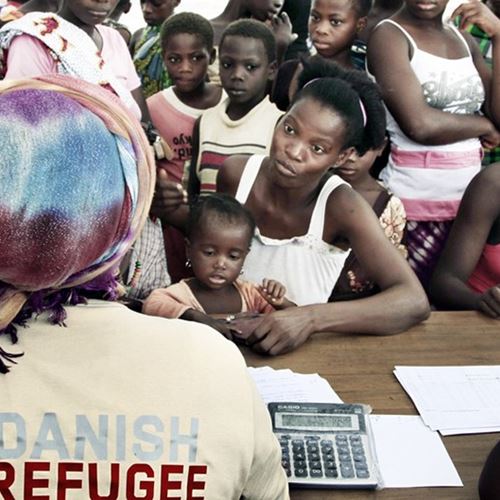The full list of signatories includes:
Danish Refugee Council
International Rescue Committee
Action Against Hunger
CARE
CECI
HELP
Mercy Corps
Norwegian Church Aid
Norwegian Refugee Council
Oxfam
Plan International
Terre des Hommes
World Vision
13 NGOs are urging all states and bodies supporting these sanctions to unequivocally commit to applying humanitarian exemptions, so that life-saving aid can reach all those in need.

A group of 13 NGOs are calling for the international community to protect the people of Mali, following the announcement of new sanctions against the country in response to the interim authorities’ decision to shelve the democratic elections promised for next month.
Last week, the European Union announced plans to support the Economic Community of West African States (ECOWAS) in the implementation of collective sanctions on Mali. The restrictions by ECOWAS include closing borders and imposing a trade embargo, as well as cutting off financial aid and freezing the country’s assets at the Central Bank of West African States. The transition government of Mali has reciprocated, closing its borders with all ECOWAS member states, apart from Guinea.
These sanctions will have devastating consequences for the people and the humanitarian situation in Mali. The population of Mali already faces the worst food insecurity seen in 10 years, with over 7.5 million people - more than a third of the country’s population - in need of humanitarian aid. It’s critical that these new restrictions do not further hamper people’s ability to access humanitarian assistance and basic social services in a country where 70% of the food is imported and where 1.2 million Malians are facing a food crisis. Mali is strongly dependent on external assistance to finance basic social services. In the area of health, for example, external donors covered 33% of total health expenditure in 2019.
The United States has also underlined its support for ECOWAS, while France - in its first weeks of its Presidency of the Council of the European Union - has suspended flights to Mali.
The 13 organisations are calling for urgent humanitarian exemptions to the sanctions and any related administrative processes must be urgently clarified, in order to protect the humanitarian response in Mali. To continue their work effectively, humanitarian actors must have unfettered access for the transportation of live-saving goods including food and medicine, as well as guarantees that they can transfer funds into the country without violating the sanctions.
Mali, ECOWAS and the members of the international community supporting these sanctions must monitor their impact, and unequivocally commit to applying humanitarian exemptions in line with existing guidelines - taking all necessary measures to limit the impact of these measures on civilians.
“Mali is facing increasing insecurity, droughts, and a health crisis due to Covid-19, which will plunge 1.2 million people into a serious food crisis by 2022. Current humanitarian aid is not enough, ECOWAS sanctions and possible EU sanctions risk aggravating an already fragile situation. It is crucial that the efforts of humanitarian organizations to maintain or even increase aid should not be hindered, by guaranteeing financial flows to Mali, allowing the movement of humanitarian’s workers, the delivery of essential goods to the most vulnerable to contribute to better protect and serve civilians.”
Danish Refugee Council
International Rescue Committee
Action Against Hunger
CARE
CECI
HELP
Mercy Corps
Norwegian Church Aid
Norwegian Refugee Council
Oxfam
Plan International
Terre des Hommes
World Vision